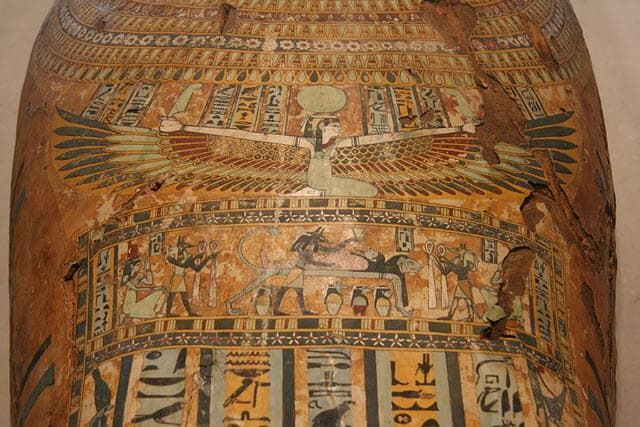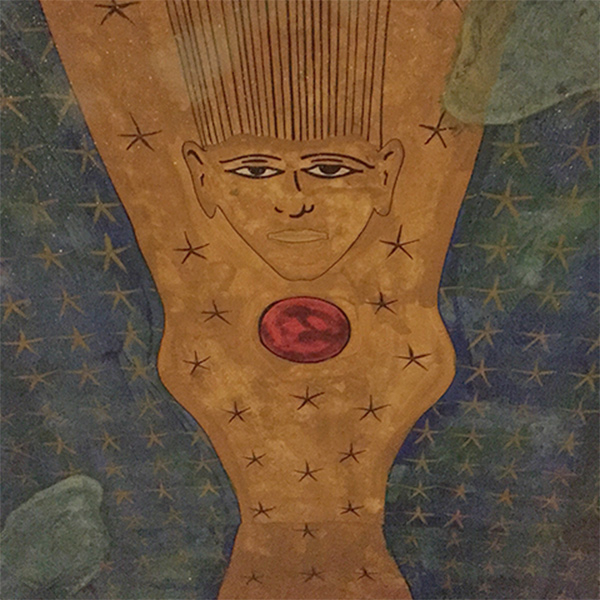Nut: The ‘Starry’ Goddess
Nut (pronounced "newt") is a goddess of the skies and heavens in ancient Egyptian mythology. She was the offspring of Tefnut, the goddess of heat, and Shu, the god of life's breath. She was typically portrayed as a female bending over the Earth, her feet in the east and her head in the west. Sometimes, she was portrayed as a celestial cow. She belonged to Heliopolis' cosmogony, which is a hypothesis about the universe's creation.
She was regarded by the ancient Egyptians as a protector of her husband, the Earth deity Geb, from the night sky. The sun god Ra is said to have passed through her according to myths; she is said to have sucked him up at night and then given birth to him every morning. Thoth later took Ra's seat at night. She was frequently linked to sarcophagi and coffins because she guarded the deceased until their resurrection in the Afterlife.
Ra prohibited Nut from giving birth during the official calendar year after discovering that she was expecting five children. There were only 360 days in the ancient Egyptian calendar's year, divided into 12 months that each had 30 days and 24 hours. Thoth, the deity of the moon, writings, and sciences, as well as the messenger and recorder of the gods, the master of wisdom, and the patron of scribes, was consulted for assistance. According to legend, Thoth was secretly in love with Nut and immediately offered his help when she did. Nut was given five more days to give birth to her five children, Osiris, Isis, Seth, Nephthys, and Horus the Elder thanks to a dice roll by Thoth with the moon. The holy community did not accept these kids and saw them as outsiders.












